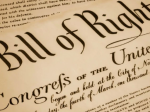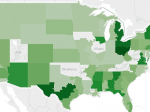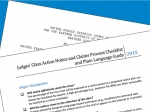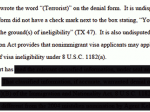You are here
Curated Resources
 |
1980 Hague Convention on International Child Abduction: A Resource for JudgesThis website provides resources to help federal judges adjudicate cases under the 1980 Hague Convention on the Civil Aspects of International Child Abduction. |
 |
Cardone Recommendation StudyThis webpage provides information about a recent FJC study of the implementation of the interim recommendations made in the Report of the Ad Hoc Committee to Review the Criminal Justice Act Program (commonly called the Cardone Report). |
 |
Civics Education and OutreachThe purpose of this curated webpage is to facilitate access to civics educational content about the federal judiciary and to assist courts in developing or expanding their civics programming and resources. It highlights civics education programming provided by federal courts, educational resources on federal court or judiciary agency websites, and additional resources of potential interest to a wide audience--judges, court staff, teachers, students, journalists, researchers, and the general public. |
 |
Election LitigationOur materials on election litigation include case studies of how federal judges have handled emergency cases and legal guides on selected voting rights statutes. |
 |
Federal and State Court CooperationFederalism envisions state and federal courts operating independently, but their paths inevitably cross and may occasionally conflict. The courts essentially serve the same people, regularly engage with some of the same parties and lawyers, and often grapple with similar legal issues and practical problems. Enhanced cooperation can help state and federal courts more efficiently resolve scheduling conflicts, facilitate access to records, share limited resources, and resolve similar, pending claims. |
 |
Illustrative Forms of Class-Action NoticesThe Federal Judicial Center developed illustrative notices (securities and product liability, employment discrimination) of proposed class action certification and settlement. These notices are designed to illustrate how attorneys and judges might comply with Federal Rule of Civil Procedure 23(c)(2)(B), which says that class action notices "must concisely and clearly state in plain, easily understood language" specific information about the nature and terms of a class action and how it might affect potential class members’ rights. |
 |
Managing Capital CasesSite is designed to assist judges assigned to capital cases, either federal death penalty prosecutions or capital habeas cases. The sites include resource guides describing practices and procedures used by courts and individual judges. |
 |
National Security CasesNational security cases often pose unusual and challenging case-management issues for the courts. Evidence or arguments may be classified; witnesses or the jury may require special security measures; attorneys’ contacts with their clients may be diminished; other challenges may present themselves. |
 |
Rules of Practice and ProcedureThe Federal Judicial Center offers many educational resources on the Federal Rules of Practice and Procedure: Appellate Procedure, Bankruptcy Procedure, Civil Procedure, Criminal Procedure, and Evidence. |
 |
Science ResourcesThe purpose of this Special Topic Webpage is to aid judges in assessing various challenges to forensic science testimony by explaining the scientific basis for such testimony and the problems that may arise with such evidence. |
 |
Third-Party Litigation FinancingThird-party litigation financing (TPLF) refers to the practice of contracting as a litigant to obtain financial assistance from third-party funders in exchange for an interest in the potential recovery. There have been a number of recent developments in litigation financing, and this area continues to evolve as the use of third-party investors to finance lawsuits becomes more common. This webpage provides publications and other resources that may be helpful to judges when encountering TPLF-related issues. |
